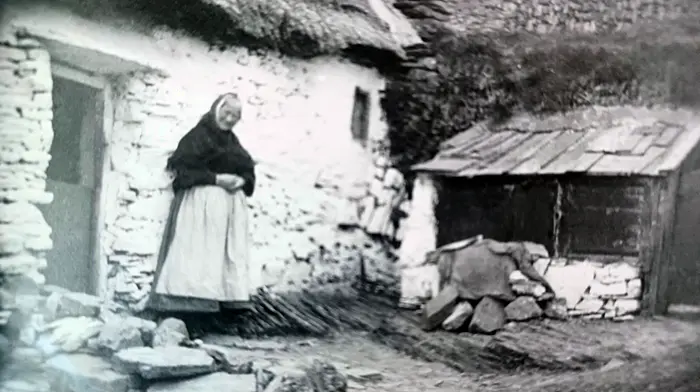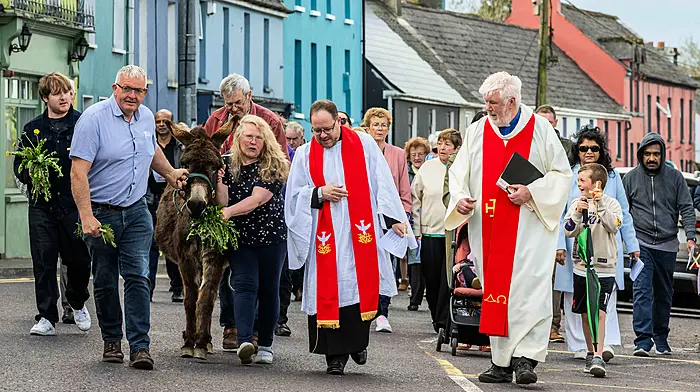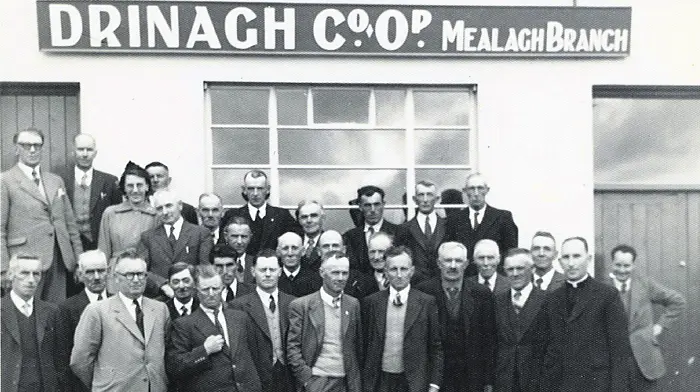Question implicit in Hook's assessment is whether Leo Varadkar has any serious political substance?
BECAUSE his image is at such a high level of fawning obsequiousness, our esteemed Taoiseach, Vlad the Impaler, might be playing a dodgy game by presuming that the electorate will support him in any attempt to abandon Ireland’s long established policy of political neutrality.
However, the unfortunate George Hook (recently hounded from his job for committing a linguistic indiscretion) certainly doesn’t buy into media brown-nosing. He got it in one in his assessment of Varadkar as a ‘public relations creation.’
Hook attributed our Taoiseach’s famousness to his participation in a Canadian ‘Gay Pride’ march, an action the world interpreted as a voguish affirmation of an Ireland that was now exquisitely trendy and more than ready to give a kick in the pants to the Irish Catholic Church.
But, prancing around Canada is one thing; the question implicit in Hook’s assessment was whether Vlad had any serious political substance? Although personally endowed with superb PR skills and having a team of excessively paid ‘meeja’ people who make sure he talks to the right audience in the right voice, Vlad’s political talents are perceived by many as limited to common-or-garden political conspiracies, particularly when it comes to chucking out a leader like Enda.
And, if he’s no statesman, could it be that he’s just a poseur with a noddle that’s full of street-smart guile?
Also important is this possibility: does his favourable relationship with the media help conceal a fundamental disinterest in Irish neutrality despite the fact that Irish people do not want any dilution of the country’s neutrality policy? Could it be that behind the mass communication image is someone who is unashamedly hawkish in support of France, Germany, Italy and Spain’s ambition to expand the EU’s military capabilities and create a common defence policy following Brexit?
A military power?
Fact is that Varadkar is rather shy about commenting on neutrality even when the EU Foreign Affairs chief asks EU member states – and that includes Ireland – to promote ‘increased European spending on military missions, and the development of joint assets such as helicopters and drones.’ Indeed, he appears to have no opinions at all on EU expansionism and the plan to create ‘a superpower in the field of security and defence.’
In July, EU leaders agreed to increase defence co-ordination by means of a multi-billion euro weapons fund that comprises shared funding for battlegroups and – wait for it – ‘a coalition of the willing to conduct missions abroad.’ Now, where before have we heard the phrase ‘coalition of the willing’? Again, a deafening silence from Varadkar.
Nor does he comment on the Permanent Structured Co-operation (PESCO) which argues for defence integration in the event of a threat of war to Europe, and which has emerged as the dynamic that feeds EU militarisation, previously having been dormant as a provision in the Lisbon Treaty. Certainly there is a belief abroad that already he has indicated quietly to member-states that Ireland endorses a military amalgamation, although the extent of this country’s commitment to the creation of a European superpower has yet to be clarified.
What we do know is that, in June of this year, Varadkar made clear that Ireland would support moves towards securing the necessary finance to ensure the development of an integrated European military power. The announcement immediately sent alarm bells ringing and prompted Labour leader Brendan Howlin (remember him?) to criticise the militarisation of the EU which, he said, was ‘designed to complement NATO structures.’
He demanded a full debate on EU militarisation in the Dáil, although some commentators drew attention to Labour’s see-saw position on neutrality (it’s for neutrality when out of office but against it when in office).
For its part, Sinn Féin is clear on the issue. It does not want a FG-dominated government undermining Irish neutrality. The republican party failed in two efforts (2003 and 2015) to enshrine neutrality in the Constitution because of ferocious Blueshirt-FF opposition.
Wrong message
Against such a background, it was not surprising that Sinn Féin MEP, Liadh Ní Riada, said she was deeply disturbed at the appearance of the Irish Navy’s LÉ Samuel Beckett at the Defence and Security equipment International (DSEI) arms fair in London. She warned that the presence of the ship was sending out an entirely wrong message about Irish neutrality, adding that the Irish Navy in recent years has been saving the lives of the most desperate people in the world who flee war and persecution.
‘It places a stain on that fine and honourable record to send our forces to associate with the peddlers of nuclear weapons and those who boast about how effective their hardware has been in assisting human rights violations in Palestine, Yemen and beyond,’ she said.
‘The Defence Minister must immediately explain the rationale behind our Defence Forces attending this dubious event. Even setting aside the issue of morality, this raises serious concerns about how it will affect our long-standing tradition of neutrality.’
IAWM criticism
The Irish Anti-War Movement also criticised the decision. ‘The LÉ Samuel Beckett will not be available to protect our fisheries or provide emergency marine rescue services while in London, where its apparent duties are to help sell lucrative military equipment for the global arms industry. This is outrageous given that the Irish government has declared Ireland to be a neutral state.’
The organisation asked the following questions: did Taoiseach Varadkar approve ‘this misuse of an Irish naval service ship? Who paid for the visit to the London arms fair; was it an international arms company? What other members of the Irish Defence Forces attended the arms fair and why?’
The Department of Defence defended its position on the grounds that the presence of the LÉ Samuel Beckett at the arms fair was ‘an opportunity to portray to a wide audience the considerable level of commitment and investment made in recent years towards protecting and safeguarding Irish territorial waters, by showcasing the success of the offshore patrol vessel design and build capabilities.’
The builders, Babcock International, requested the ship’s attendance and, said the Department, ‘no additional advantage or benefit was received by Defence Force personnel.’
Fokker aircraft
And now for something different: Here’s a story to mark the 35th anniversary of the death of Sir Douglas Bader, the RAF Second World War hero, who won fame as a legless fighter pilot (no, not in the drunken sense! He literally had no legs).
Bader was giving a talk at a posh English girl’s school about his exploits which went as follows: ‘There were two of the f***ers behind me, three f***ers to my right, another f***er on the left,’ he told the startled audience.
The headmistress went pale and interjected: ‘Ladies, we must bear in mind that the Fokker was a German aircraft.’
The airman replied: ‘That may be, madam, but these f***ers were in Messerschmitts!’








